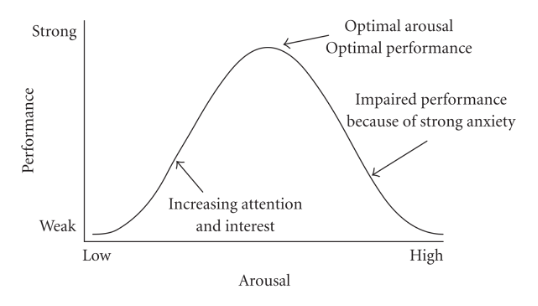We have all undoubtedly experienced periods of excessive and prolonged stress. Excessive stress can profoundly impact our overall well-being—physically and mentally. However, it’s important to note that stress sometimes gets a bad rap!
Dr Sarah McKay notes: “But feeling stressed is not always a bad thing. When stress is short-term and manageable, it motivates and facilitates learning and change. Stress only becomes toxic when it’s excessive or long-lasting.”
Eustress: Yerkes-Dodson Law
Scientists highlight the concept of positive stress (eustress) that helps you stay alert, focused, and energised. This type of moderate stress stimulates the release of hormones like cortisol and noradrenaline, enhancing memory, attention, and alertness when experienced in moderation.

Thanks to https://bigthink.com/the-learning-curve/eustress/ for the image.
The Yerkes-Dodson law, also known as the anxiety-performance curve, shows that performance and arousal — that is, stress and motivation — rise in tandem to an optimal level called eustress. Additional stress beyond that peak tips into distress and impaired performance. (Credit: David M Diamond, et al. / Wikimedia Commons)
Change Your Relationship With Stress With These Nudges
Nudge 1 – Listen to the Huberman Podcast on Tools to Manage Stress and Anxiety.
Nudge 2 – Watch How to Make Stress Your Friend – TED Talk by Kelly McGonigal
Nudge 3 – Read Dr Sarah McKay’s article on six ways to beat stress
Nudge 4 – Where are you in the Yerkes-Dodson curve? Check out Sarah McKay's "Bottom-up, Top-down, Outside-in model" for some great strategies to manage stress effectively.
It's crucial to manage stress levels to maintain optimal well-being. Techniques like mindfulness, physical exercise, and setting healthy boundaries can help keep stress in a beneficial range, allowing you to harness its motivating power without suffering its harmful effects. Balancing stress is key to protecting your mental and physical health. Next time you feel like saying "I'm so stressed", check out the nudges above for ways to get back into that optimal stress zone!
